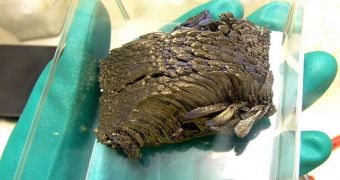The general public arguably had little knowledge that rare-Earth elements (REE) existed until a few weeks ago, when China began tightening export regulations for the material, essentially stopping all shipments to the United States, the European Union and Japan.
The move caused quite a stir, considering the important strategic significance of the materials, and the fact that China made its decision after the US decided to ask for a formal investigation of the Asian nation at the World Trade Organization (WTO).
Chinese authorities did not take too kindly of this, and halted all REE shipments to the US a couple of days later. These chemicals are no longer produced in America.
Additionally, all research&development and engineering capabilities the country had have long since moved overseas, which means that the US REE-producing capabilities are close to zero.
American strategic analysts have been drawing attention to this vulnerability, but officials at the White House and in Congress preferred to ignore the warnings.
China is responsible for producing about 95 percent of the world's REE supplies, and controls the market with an iron fist. It arrived at this position by forcing its competitors out of business.
The reason why so much fuss is being made in the media over these elements is that they are of extreme importance for nearly every field of the high-tech industry, especially in electronics.
The chemicals in this category are used to create hybrid batteries and fuel cells, fluorescent light bulbs, hard drives, wind turbines, permanent and superconducting magnets, as well as microprocessors.
In some instances, alternatives to using REE for specific applications exist, or are in development, but the bottom line is that no developed nation can dispense itself from the Chinese supplies just yet.
As far as the US goes, things aren't looking too bright. Market analysts say that available capabilities are minimal, and that it will take at least a decade before the country can sustain its own REE demand.
There are also adjacent issues to consider, such as the fact that most REE processing facilities the country or its companies have are concentrated elsewhere, in Germany or Japan.
Opening REE mines is also a very polluting activity, and there are significant environmental concerns to keep in mind when sanctioning the opening of such exploitation sites.
After China silently ceased supplies, the few companies around the world that are still producing the chemicals independently of Beijing's control ramped up production, Technology Review reports.
However, these are short-term measures, that cannot compensate for the vast amounts of REE that China was exporting. Longer-term plans are needed in the US and elsewhere.

 14 DAY TRIAL //
14 DAY TRIAL //